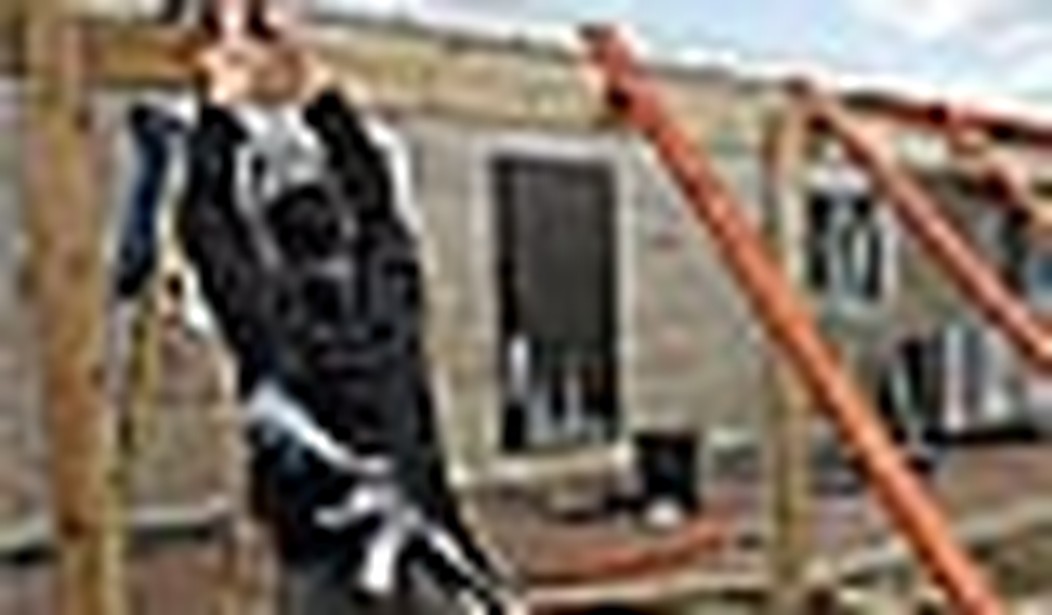A few months ago I visited Avigail, an illegal West Bank outpost founded in 2001 by four idealistic Israelis who dreamed of expanding Israel’s line of settlements over the Green Line.
At the time of my visit, the U.S. administration was demanding a settlement freeze as a precursor to Israeli-Palestinian meetings and on my visit I wanted to gauge the mood and ask if they were worried that a freeze may lead to eventual dismantling and evacuation.
Months later a building freeze is in place. Israelis and Palestinians are meeting directly for the first time in nearly two years to review options for arriving at a final stage agreement. Palestinian and international pressure for the ongoing construction freeze persist and talk of settlement dismantling looms closer.
So it seemed natural to check back in with Avigail’s young community leaders as Palestinian and Israeli principals readied to reconvene in Sharm el Sheikh.
Thirty-year-old Avigail founder Elisha Medan admitted that he may be naïve but his expectations for any outcome from the current talks are low:
It’s almost like a ritual. Every few years Israel gets a new prime minister and to keep the Americans and Israel’s left happy, they sit down with the other side. It’s like: See, we’re talking. Look at us. Nothing came out of Oslo because they don’t accept what we offer. So we’re not worried about these talks either.
But if the sides were to ultimately reach an agreement stipulating land concession and settlement evacuation, Medan maintains he is still not troubled because, in his opinion, there’s no reason to move Avigail residents from their spot.
We are very close to the Green Line and we are a block of Jewish settlers. Why not move the border or the fence around us? There’s no reason not to keep us where we are.
Medan seems to be overlooking the simplest of all reasons: negotiating power. In a bargaining chip effort at negotiating the status of larger settlements like Kiryat Arba, the “fringe outposts” deemed illegal and disallowed building permits from the get-go may be the Israeli government’s first proverbial “sacrificial barter” in getting to tougher final status agreements.
Avigail was originally given the green light by Judea and Samaria’s head of council who, literally, directed founders to the exact spot for setting up pre-fab, easy-to-deconstruct homes. The site choice was tactical: it constituted a continued link in a West Bank settlement chain and the hilltop area served as an overlook for a road being targeted at the time by Palestinians pulling hits on Israeli drivers.
In light of recent deadly Hamas attacks on settlers near Hebron coinciding with the talks in Washington, Medan underplays speculation of continued vengeance as each new round of meetings gets underway.
This is nothing new. They try to kill us whenever they can, all the time. It just happens that this time they succeeded and it happened to be during the talks. But we’ve been at war with them since Isaac and Ishmael were born to Abraham. They always say it’s timing and that there are attacks during peace talks. But you tell me: When is the timing ever right to kill a pregnant woman?
If evacuation is ordered Medan says his community won’t go down without a fight.
Shira Recanati, a 30-year-old mother of three young children voiced her safety concerns in our meeting of months ago. She was uncomfortable venturing out at night in the car and she worried about her children’s safety.
Currently she sees the negotiation efforts as purely diplomatic and she isn’t troubled about their outcome. Recent events linked to the talks, however, have compounded Recanati’s trepidation:
Where I used to be frightened of driving at night, I’m now scared to go out during the day too. Let’s face it: I’m living in the Wild West. I’m constantly thinking: “How will I protect my 10-month-old if I’m shot?”
Unlike Medan, if there is an evacuation Recanati says she will not put up a fight.
“My daily life is such a struggle that I don’t want to be in the situation of fighting against soldiers,” she says. “If they tell us to go, I’ll pack it up and go. I can’t even imagine it. … But no, I won’t fight.”









Join the conversation as a VIP Member